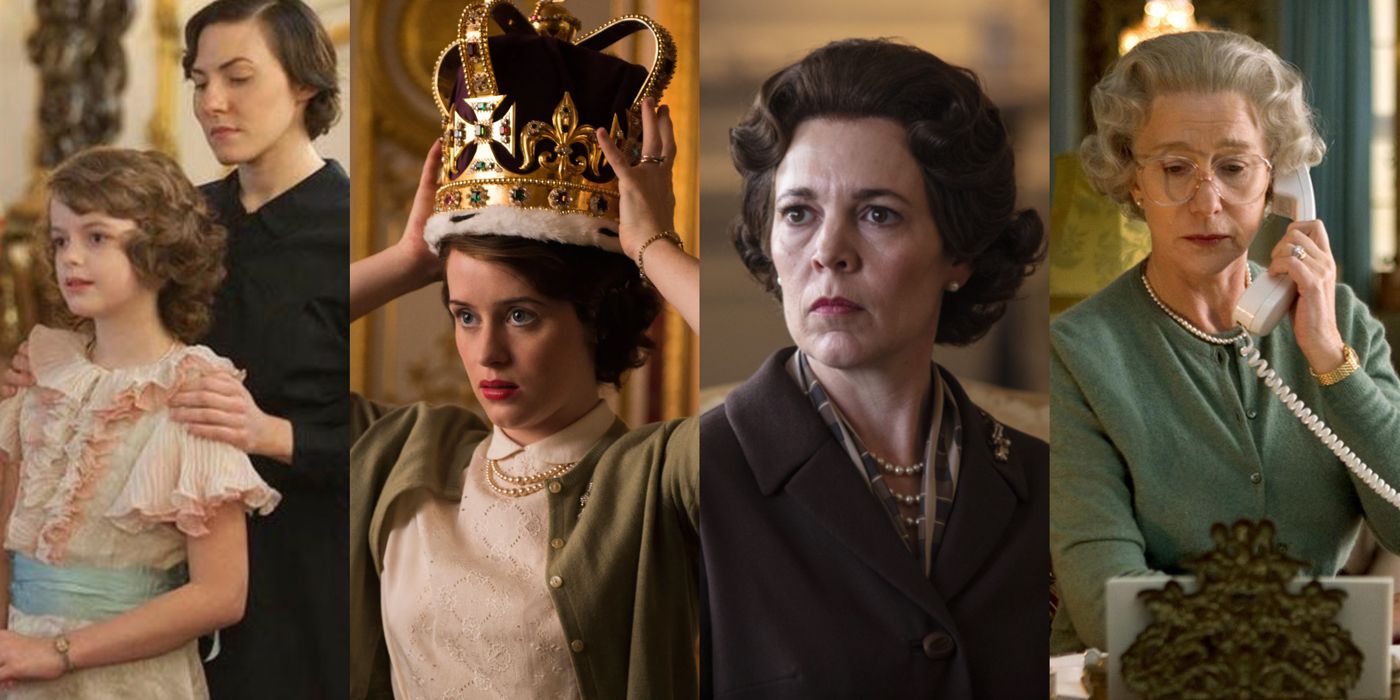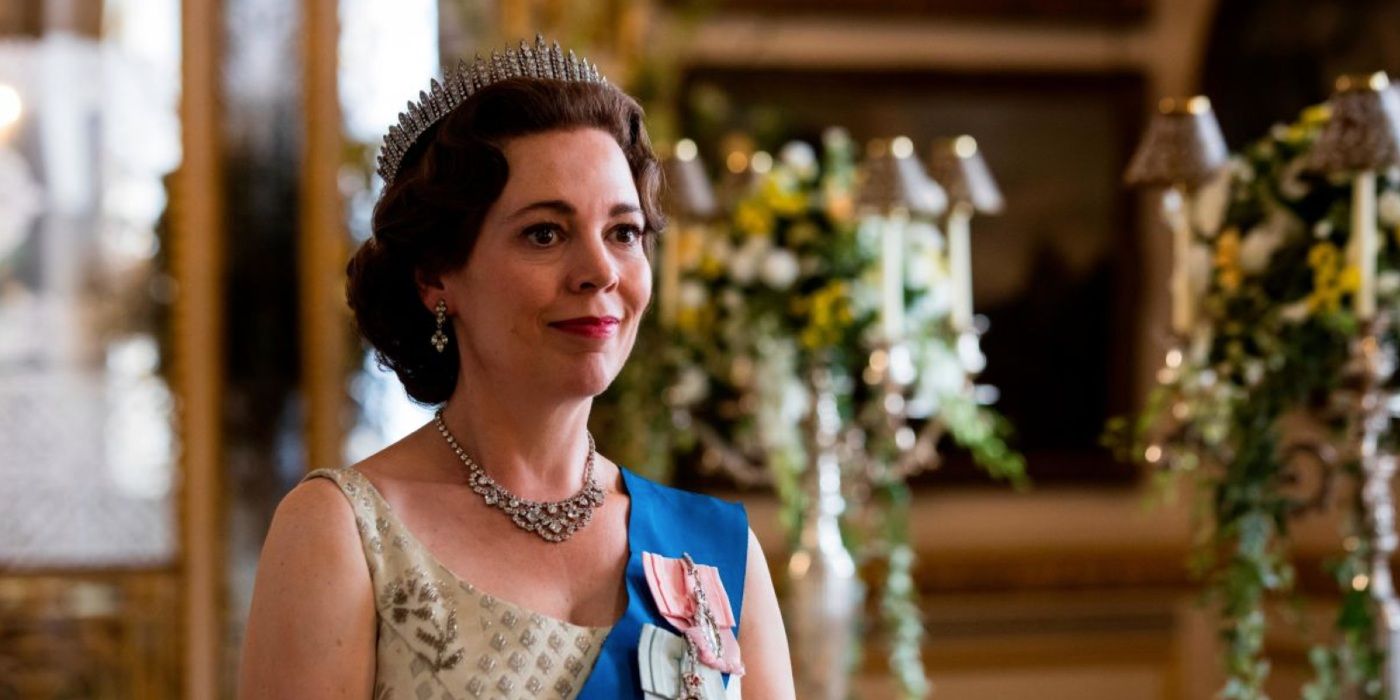The death of Queen Elizabeth II marks the death of arguably the most prominent public figure of the 20th century, and one of the most significant in modern history. Within that, the life of the British monarch that reigned for over 70 years has been subject to multiple interpretations in tv and film.
The fifth season of the Netflix series The Crown is due to premiere on November 11th, as the streamer announced on September 24th. Actress Imelda Staunton will be the third person to portray the monarch on the show, covering the turn of the millennium and the final decades of Elizabeth's reign. Staunton's performance will naturally draw a comparison to previous portrayals of The Queen on the show, as well as the multiple interpretations across film and television.
Jennifer Saunders — Minions (2015)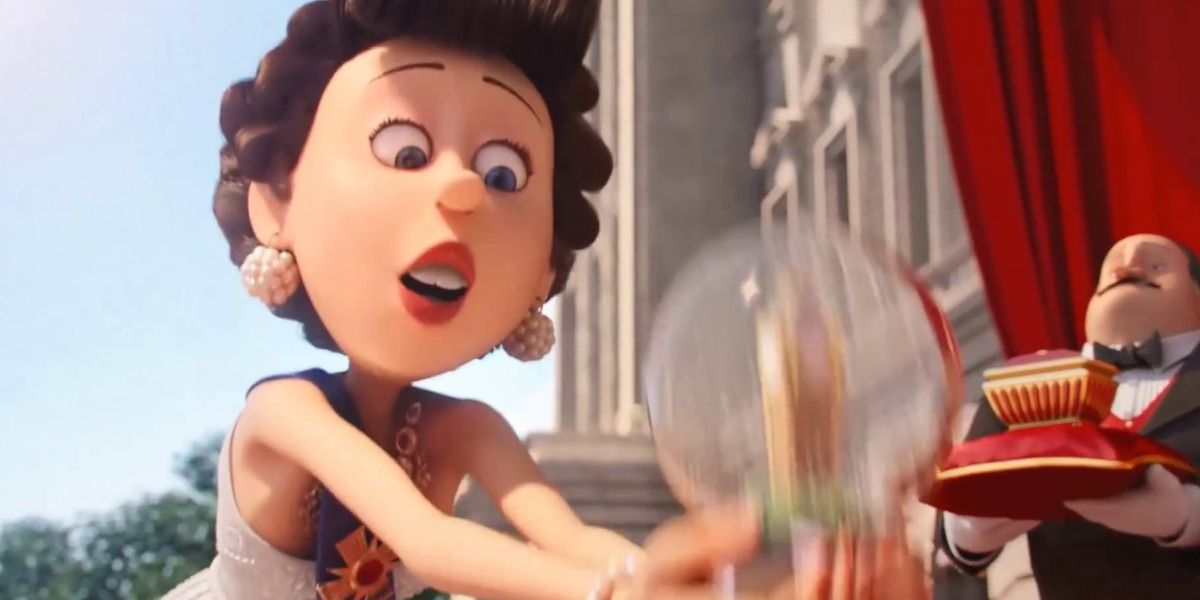
Comedian Jennifer Saunders voiced a fictional Queen Elizabeth in the animated family film. In 1968, the minions are tasked with kidnapping the Queen for her priceless crown, making Bob the new reigning King.
Saunders does not sound exactly like Queen Elizabeth did in her youth. However, her gifts as a comedian help provide an accurate impression of regality with good humor, similarly to her role as the Fairy Godmother in Shrek 2. Obviously an entirely fictional idea, it is difficult to compare the performance to more historical portrayals of The Queen, but the cameo makes for a fun appearance nonetheless.
Freya Wilson — The King’s Speech (2010)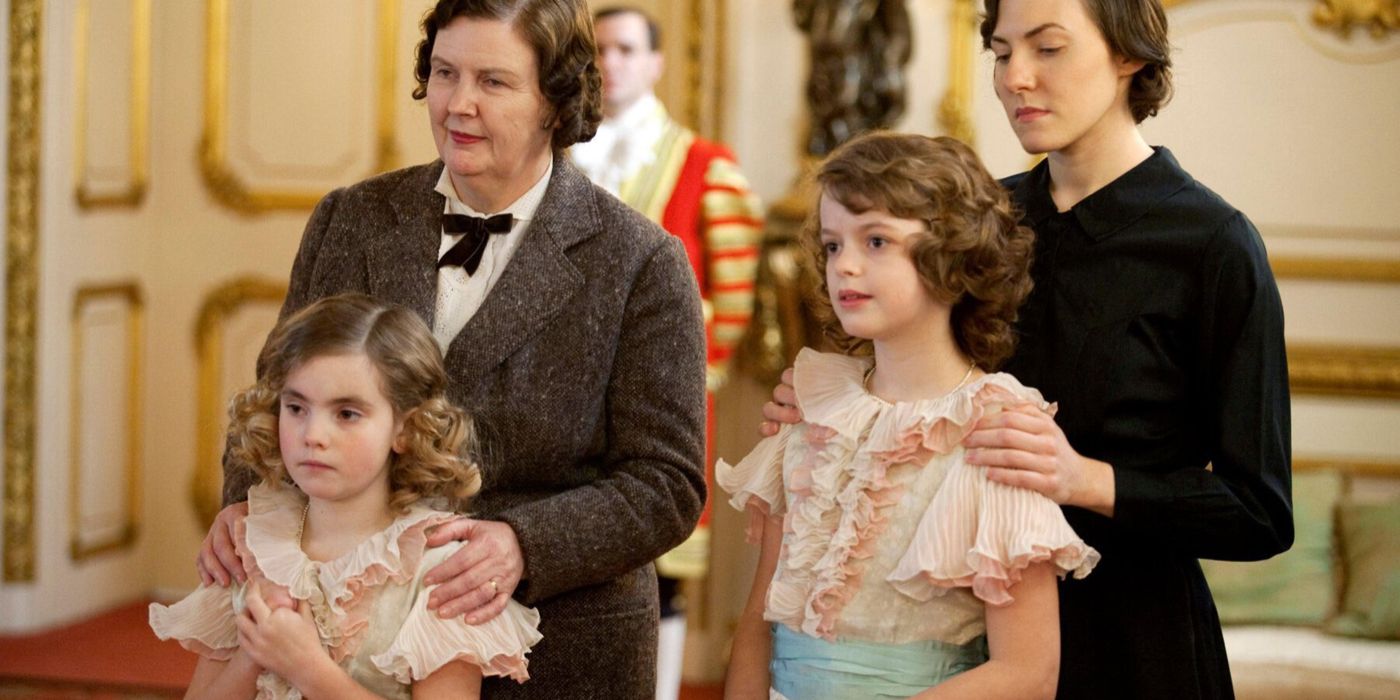
The King's Speech portrays the true story of King George VI, the father of Queen Elizabeth II. After his brother, Edward VIII, abdicates the throne, the new King seeks a speech therapist to overcome his stutter and address the nation in the lead up to the Second World War.
Freya Wilson portrays the then-Princess Elizabeth with great accuracy, especially in comparison to visual and audio sources of Elizabeth's early life. The main critique of The King's Speech's portrayal of Elizabeth is that she simply isn't in the film enough, and the film would have benefited from leaning more into Elizabeth's relationship with her father and the child adapting to her new role as a future monarch.
Samantha Bond — The Queen & I (2018)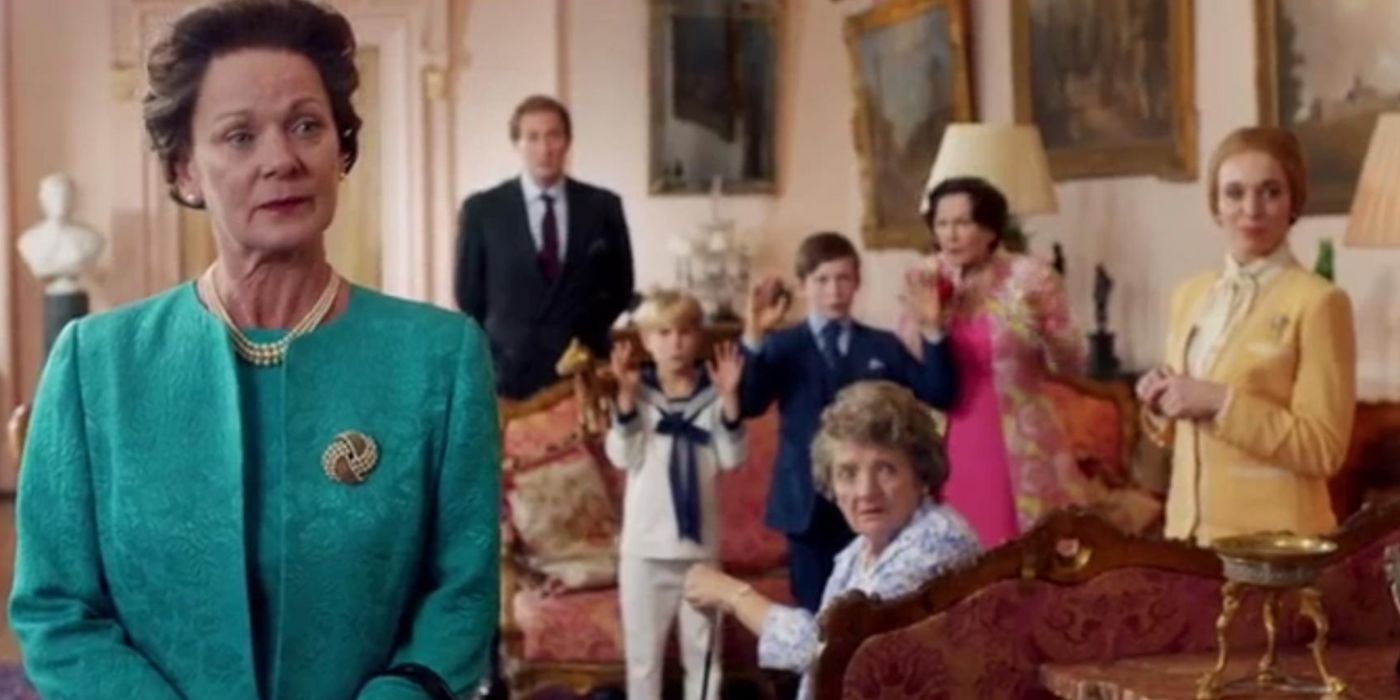
Samantha Bond played a fictionalized Queen Elizabeth in this adaptation of the Sue Townsend comedy novel, where a republican movement forces the Royal Family out of Buckingham Palace, and are forced to make ends meet in social housing.
This take on the Royal Family by an anti-monarchist writer certainly makes for an interesting conversation starter and opportunity for satire, but the film's humor often falls flat and fails to measure up to the critically acclaimed book. Samantha Bond certainly boasts both accuracies in portraying The Queen while also delivering a strong comedic performance, but the film does not give her much to work with.
Penelope Wilton — The BFG (2016)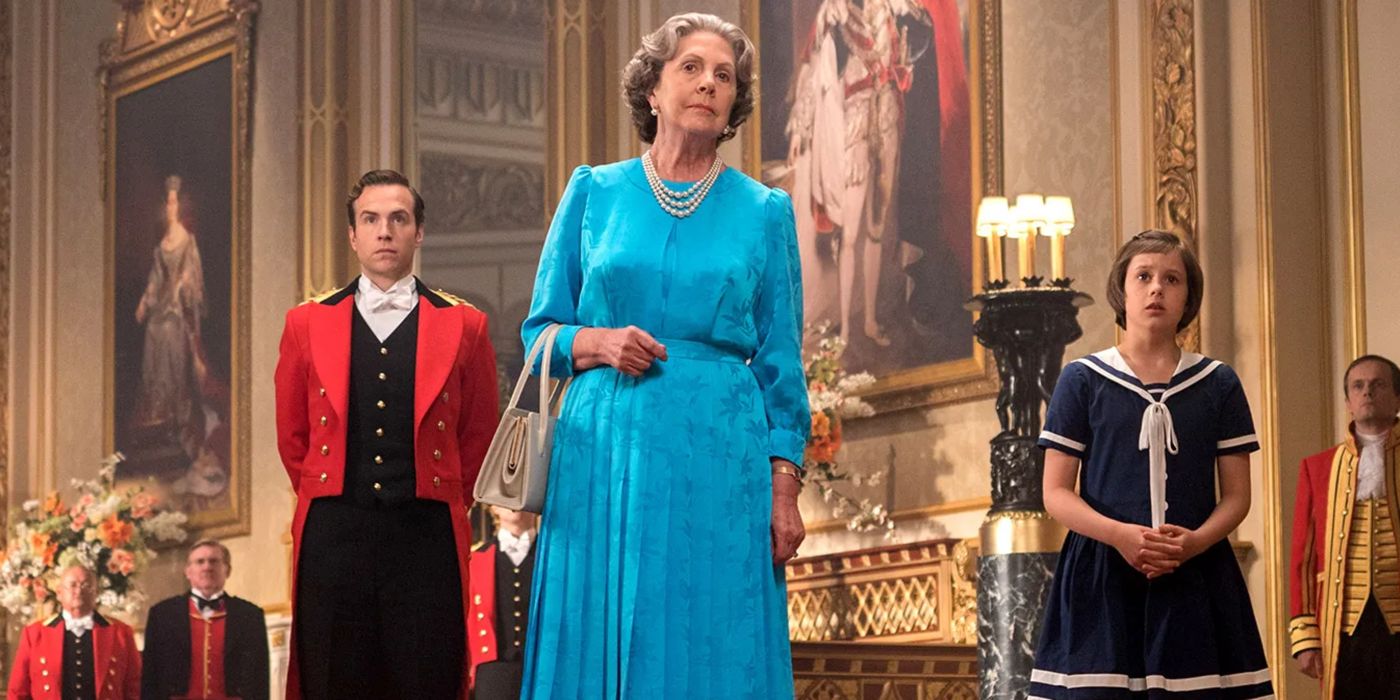
Steven Spielberg's Roald Dahl adaptation was not nearly as acclaimed as his other directorial work, but the director captured much of the charm of the unlikely friendship between an orphan and an affable giant. In the film, the BFG (Big Friendly Giant) tries to deliver a nightmare to Queen Elizabeth about an upcoming attack of giants, but the pair end up accidentally crossing paths.
The BFG is perhaps one of Steven Spielberg's more underrated movies. The film portrays a more heightened version of The Queen in keeping with Roald Dahl's signature style, and Buckingham Palace is a perfect outlet to play comedic scenes with the BFG in. Penelope Wilton is a dead ringer for the monarch, especially vocally, but her character is given little complexity.
Emma Thompson — Walking The Dogs (2012)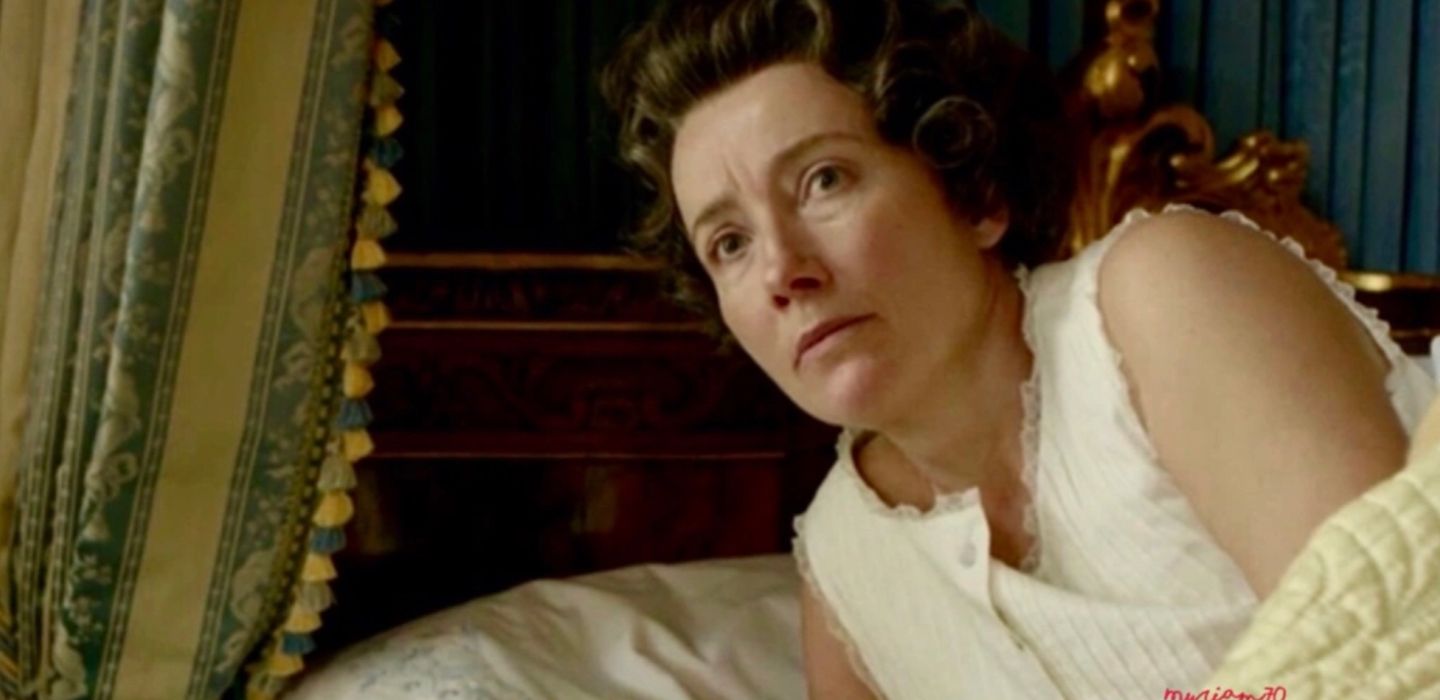
Emma Thompson portrays Queen Elizabeth during the height of Margaret Thatcher's Britain in this true story of an intruder breaking into her palace bedroom. The intruder, Michael Fagan, did so under the impression he could alert The Queen to the struggles of her subjects under Thatcher's premiership. In the short, the pair engage in an imagined exchange.
According to historical accounts of the actual event, The Queen and Michael Fagan did not converse with one another beyond Fagan making his appearance known. Despite this, Emma Thompson makes for a formidable Queen Elizabeth with powerful monologues. However, The Crown's interpretation of the event in its fourth season offers much more insight into the historical context of the event, with greater shade and light on Elizabeth's role during Thatcherism.
Sarah Gadon — A Royal Night Out (2015)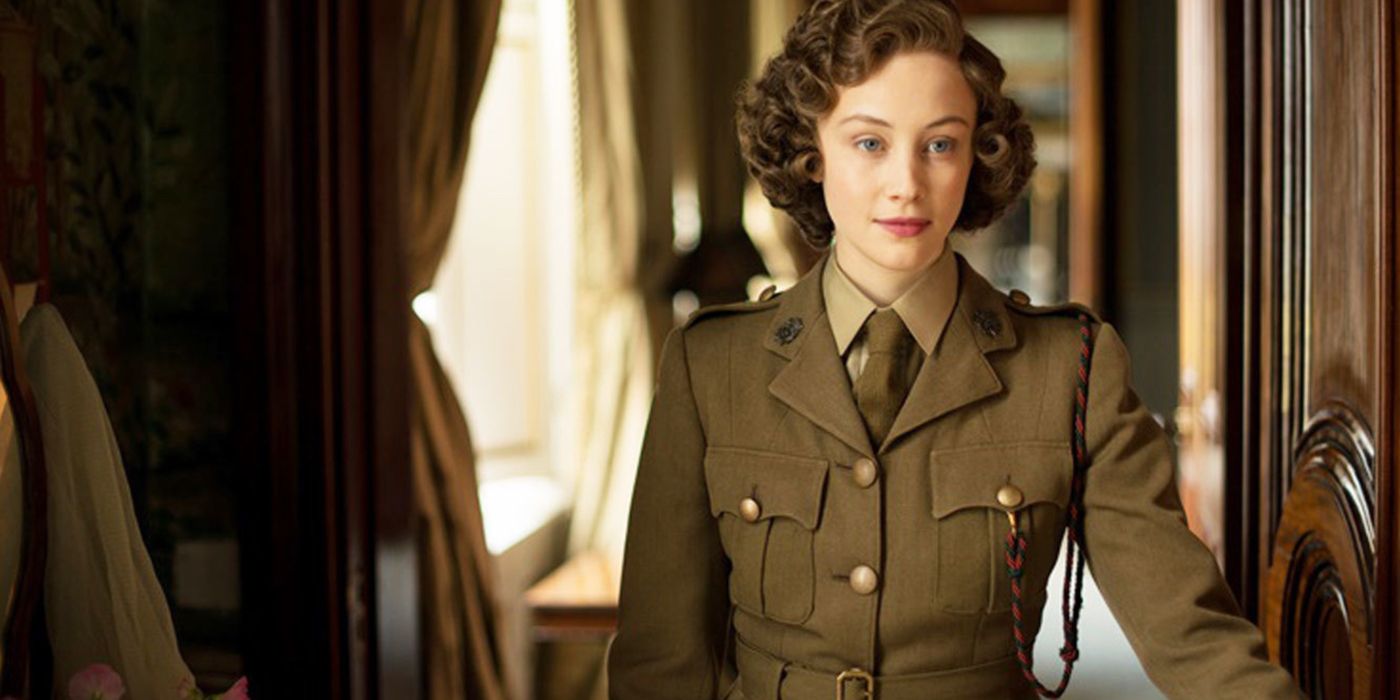
A Royal Night Out portrays the then-Princess Elizabeth and her younger sister, Princess Margaret, during the celebrations of VE (Victory in Europe) Day at the end of the Second World War. The pair convince their father to let them join in on the celebrations, exploring the nightlife of London in disguise.
Elizabeth's early life as a Princess has been rarely been adapted into film, and this interpretation makes for a welcome change in a midst of portrayals of an elder monarch. While mostly drawing from creative interpretation, the film adds more humanity to a figure that the majority of her subjects have only known as the head of state.
Stella Gonet — Spencer (2022)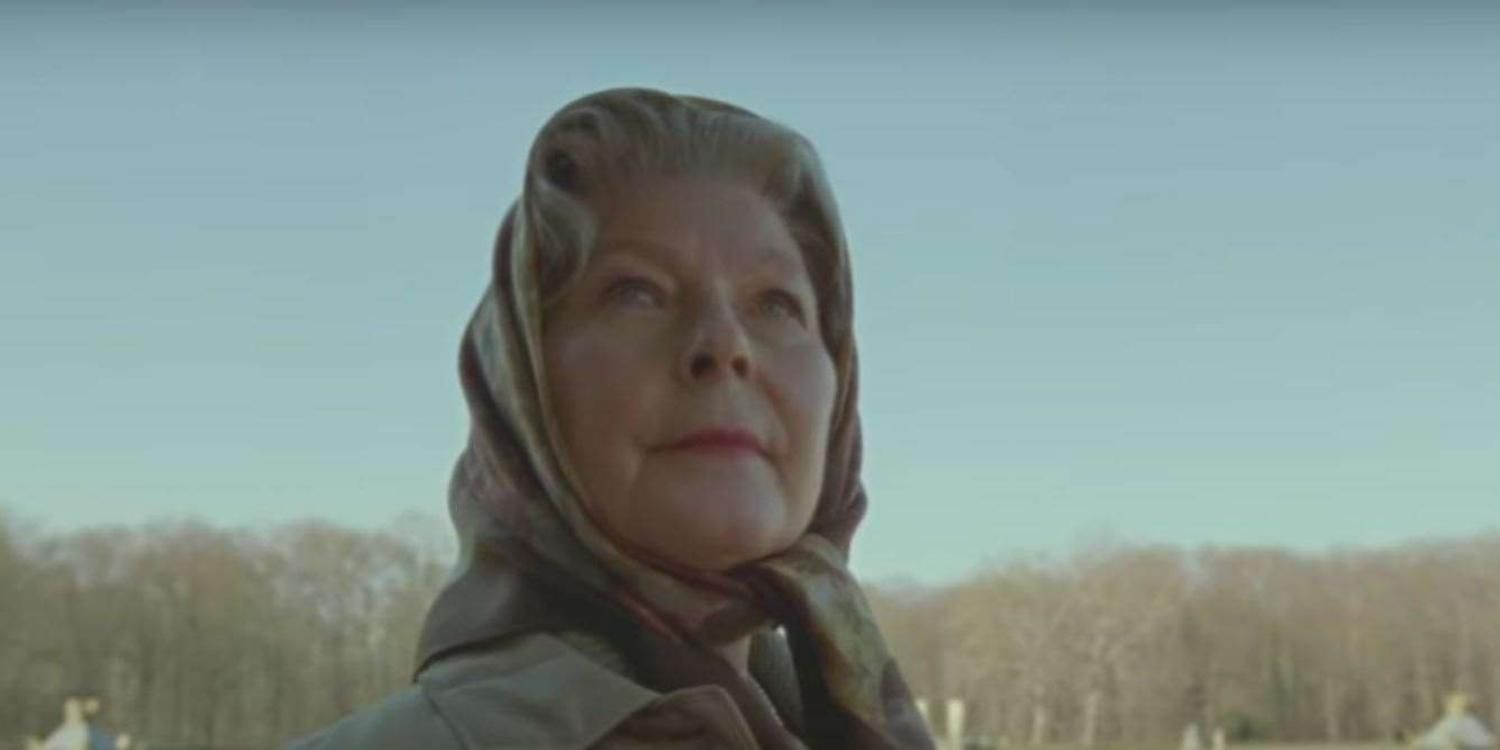
This unconventional biopic is a largely fictionalized story of Princess Diana's Christmas at Sandringham Estate as her marriage continuously breaks down. Feeling isolated and struggling with her mental health, Diana looks to her family, including Queen Elizabeth, for help.
Although Queen Elizabeth has very few lines in Spencer, her presence, even without dialogue, is a highly avant-garde portrayal of claustrophobia and personal sacrifice. When the two share exchanges, Gonet's performance is a powerful piece in expressing the emotional sacrifices that the crown requires of its wearer.
Helen Mirren — The Queen (2006)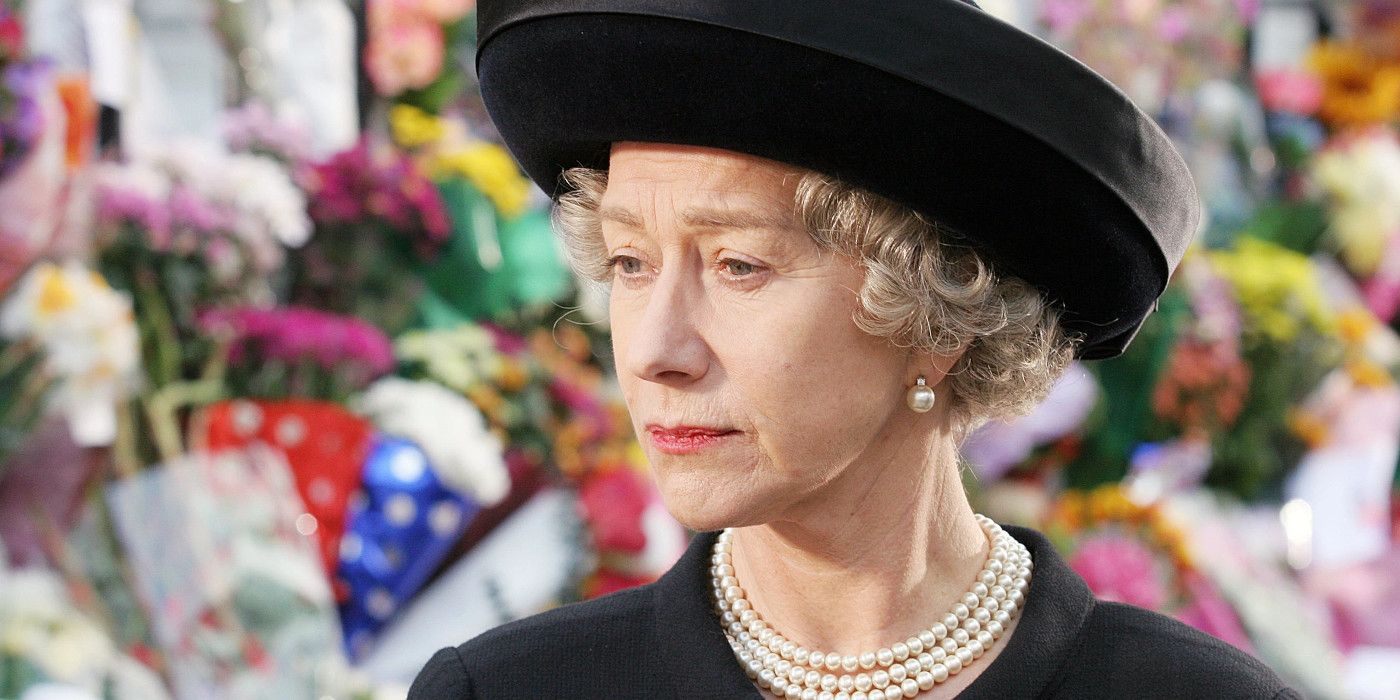
Helen Mirren won an Academy Award for this intimate look at Queen Elizabeth and her inner conflict amidst the monarchy's waning popularity. Set in the aftermath of the death of Princess Diana, new Prime Minister Tony Blair suggests she goes against tradition and addresses her grieving subjects as Republican sentiments rise.
Mirren is a worthy Best Actress Oscar winner, in this stunning, layered performance. Its director, Stephen Frears, is a Republican, and this can be seen on screen. The Queen ridicules the restrictions and double standards that monarchy requires, creating a highly sympathetic portrayal of Queen Elizabeth that aids Mirren's performance.
Claire Foy — The Crown (Seasons 1-2)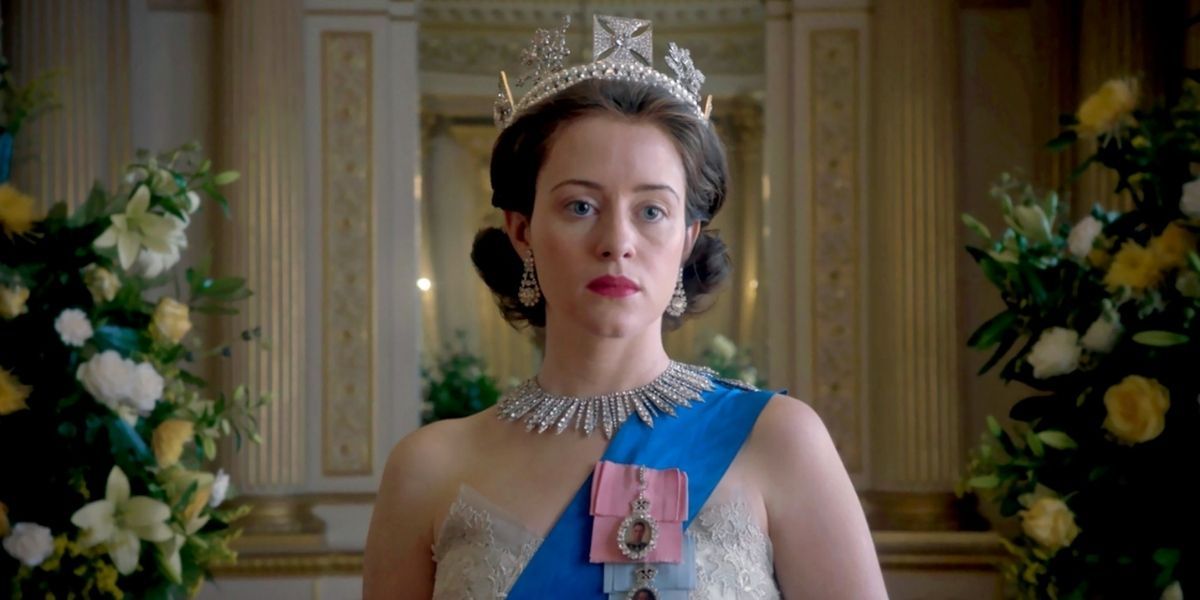
The first two seasons of Netflix's historical epic The Crown showcase the final years of Elizabeth as Princess, living in Malta with her young family, and her early reign as Queen in the aftermath of George VI's unexpected death.
Claire Foy's era of The Crown is a rarity in portraying the transitional phase of Elizabeth between her roles as Princess and reigning monarch - most notably when she denies her sister Margaret's request to marry divorcé Peter Townsend. Foy expertly blends the two opposing sides of a conflicted young Elizabeth that grows more confident in her role as the show progresses.
Olivia Colman — The Crown (Seasons 3-4)
Olivia Colman played an older Queen Elizabeth from the 1960s to early 1990s in two seasons of The Crown. This version of Queen Elizabeth, having reigned for over two decades, is faced with significant historical events, from the Moon Landing to Thatcherism, as well as personal struggles such as her strained relationship with her children and the breakdown of their respective marriages.
Colman's version of Queen Elizabeth is the most well-rounded, reflecting the emotional turmoil of the monarch while shedding new light on the dedication to traditionalism that for many, made the Queen an increasingly hostile figure. This, of course, could not be achieved without Colman's performance, masterfully portraying the lessons requires of a figurehead, as learned during Foy's era of the show. At the same time, Colman manages to highlight the cracks in the foundation of a premiership that demands a monarch to remain unfeeling.

